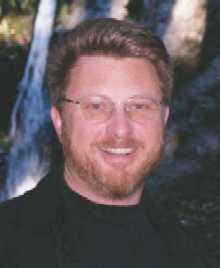 It's a fairly ancient and standard joke that in the world of Politically Correct Terminology a trash hauler is a "sanitary engineer." Despite that, it is actually true that how we name things does affect how we perceive them. Here are a few suggested alternative terms for things that just might help folks understand why the green version is important:
It's a fairly ancient and standard joke that in the world of Politically Correct Terminology a trash hauler is a "sanitary engineer." Despite that, it is actually true that how we name things does affect how we perceive them. Here are a few suggested alternative terms for things that just might help folks understand why the green version is important:- "Conventionally Grown Food" is, really, something of a misnomer. Using heavy doses of petrochemical neurotoxins and artificial growth stimulants to grow our food has only been "conventional" (i.e., the usual manner) for the last 50 years or so. Before that, much more organic and near-organic food reached our tables -- because that was the norm. So, instead of "conventionally grown" may I suggest "chemically grown food" to accurately reflect the state of what's in the super market. Or as we sometimes call it around our house "dirty
 food." Try this term swap yourself, and suddenly organic food seems a lot more reasonable.
food." Try this term swap yourself, and suddenly organic food seems a lot more reasonable.
- "Organic Food" as a term is itself problematical. It makes that food seem special, even unusual. This is not good for at least three reasons: First, many large producers charge unnecessary premium prices for organically grown products, trading on the implication of "specialness" to make a higher profit. Second, organic food should be the norm -- i.e., "conventional" should mean "organic," but it never will so long as we refer to clean food as something special. Third, "organic" brings with it all sorts of baggage suggesting hippies eating brown rice stored in hand thrown pottery jars that many folks just don't want to be associated with, even if they really aren't all that excited about poisoning themselves or our farmland by eating the chemically grown variety. So, in our house, we call organic food what it is: "clean food."
- "Bike rider" or "cyclist" similarly does not convey the (should be) mainstream
 nature of human powered transportation in our cities and suburbs. I have taken to referring to "bike drivers" when discussing vehicular cyclists. Bike drivers have a right to use the road; bike drivers are serious vehicles, going places and doing things, not just sports enthusiasts out for a little ride.
nature of human powered transportation in our cities and suburbs. I have taken to referring to "bike drivers" when discussing vehicular cyclists. Bike drivers have a right to use the road; bike drivers are serious vehicles, going places and doing things, not just sports enthusiasts out for a little ride.
- "Drivers" or "car drivers" used to refer to motor vehicles operators does not either accurately include all vehicles on the road, or the activity that takes place in a car. I actually drive my bike; I push it forward under my own muscle power. If you are in a car, the best that can be said is you are out for a ride. Thus, of course, I often refer casually to "car riders," both as the flip-side of "bike drivers" and to demonstrate the passivity of the activity.
So, you might hear me say something like this:
Tomorrow I'll drive my bike to the market after work; because of the bike I'll have an easier time parking than most of the car riders making the same trip. I'll buy our favorite clean pasta and sauce to cook for a big group of folks, but will probably compromise and buy chemically grown dark chocolate for the dessert we are making, and dirty artichokes because the clean ones are currently out of stock. "
See what I mean? The need to buy chemically grown and dirty food over clean food is terribly reduced. In my revised paragraph, the patchouli-tinged aura associated with a fluffy bike ride to buy organic pasta is reduced, as is the whingeing and whining factor that comes of complaining that your store is out of organic vegetables. No one could blame you for griping about having to buy chemically grown food -- even though most people don't realize that's what they're eating already anyway!
 Remember the advice of good old Humpty Dumpty:
Remember the advice of good old Humpty Dumpty:
'When I use a word,' Humpty Dumpty said, in a rather scornful tone,' it means just what I choose it to mean, neither more nor less.' 'The question is,' said Alice, 'whether you can make words mean so many different things.' 'The question is,' said Humpty Dumpty, 'which is to be master - that's all.'
